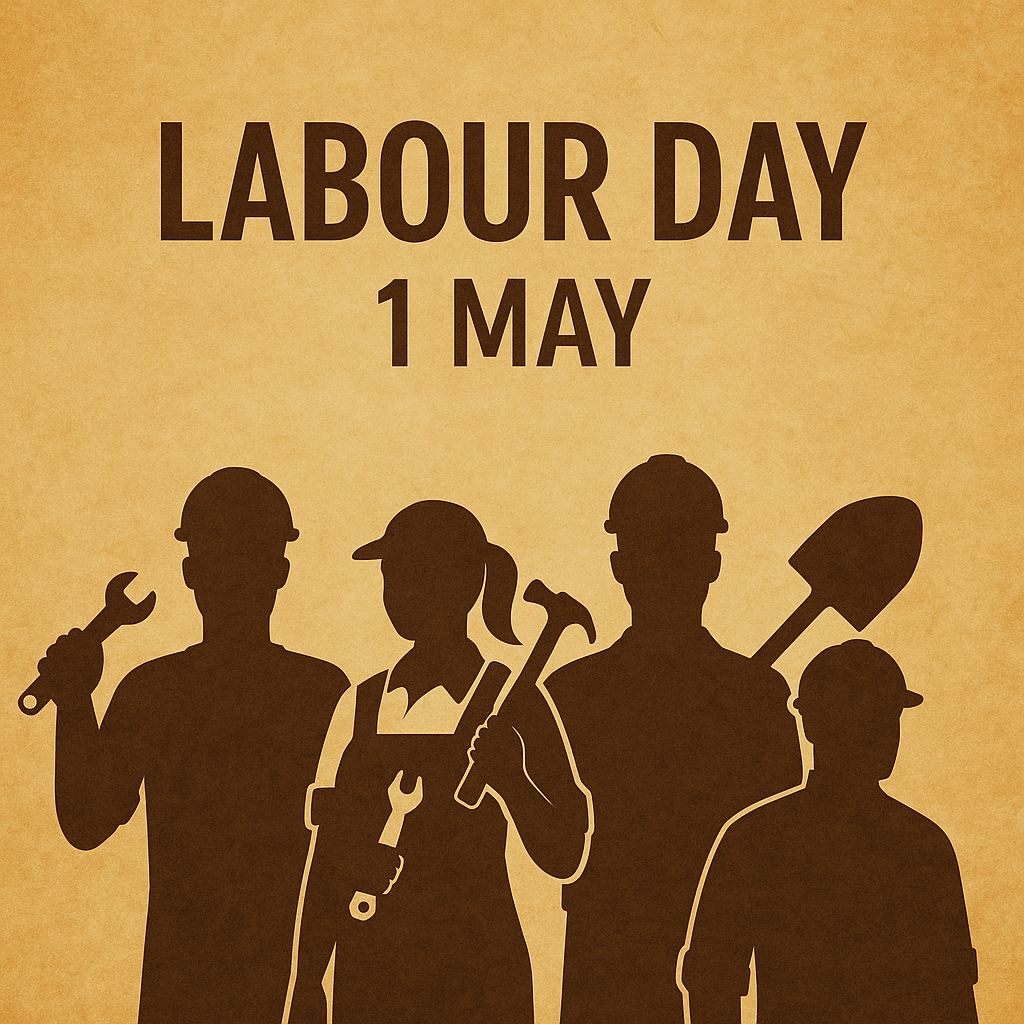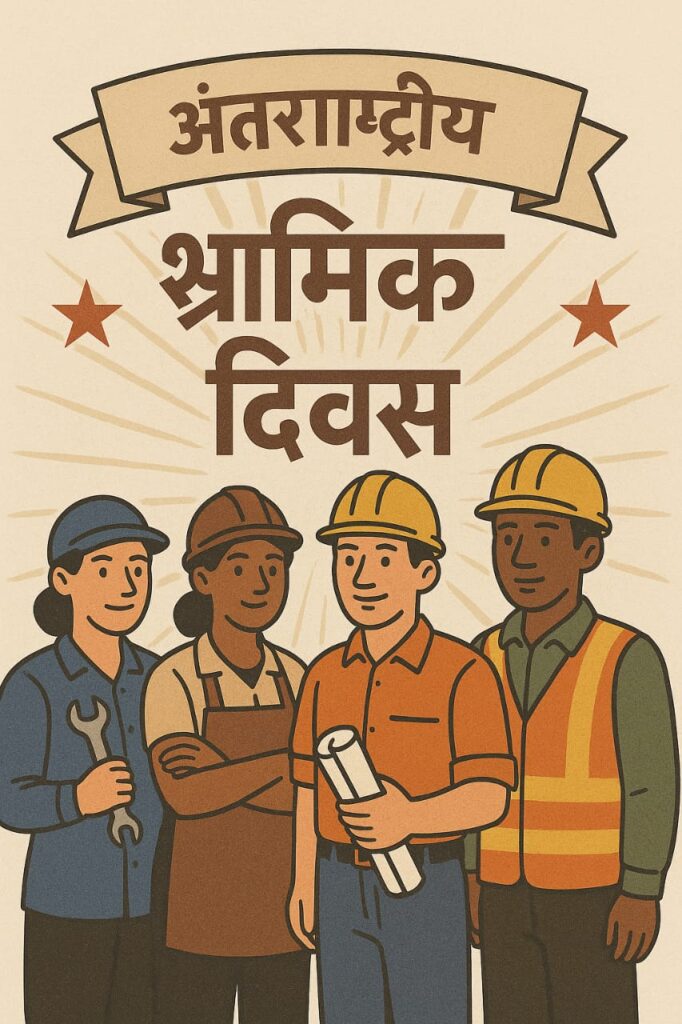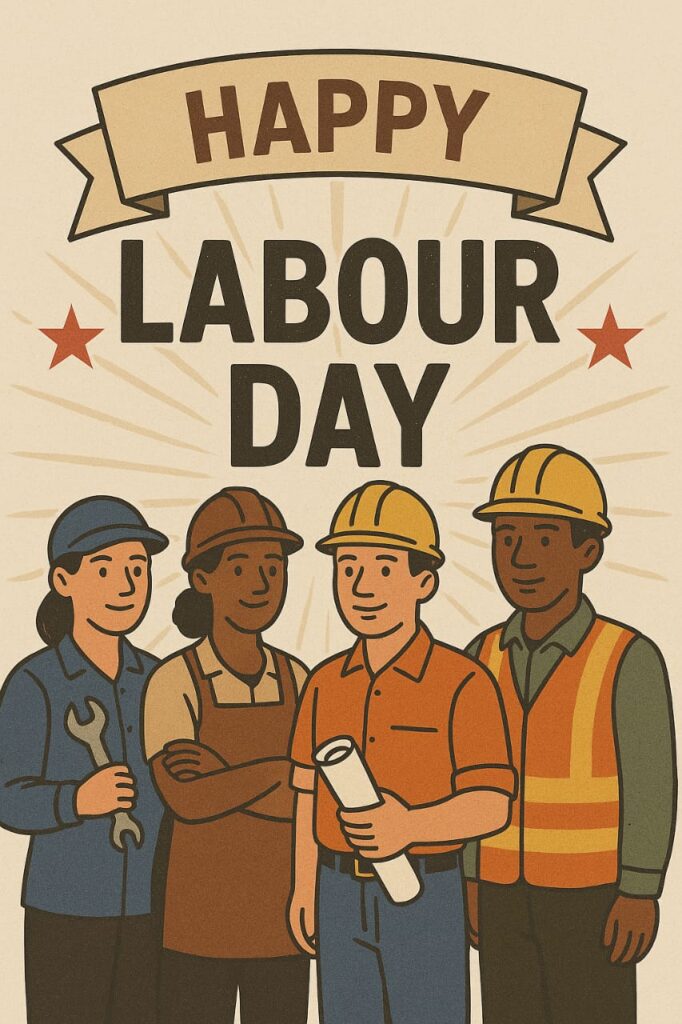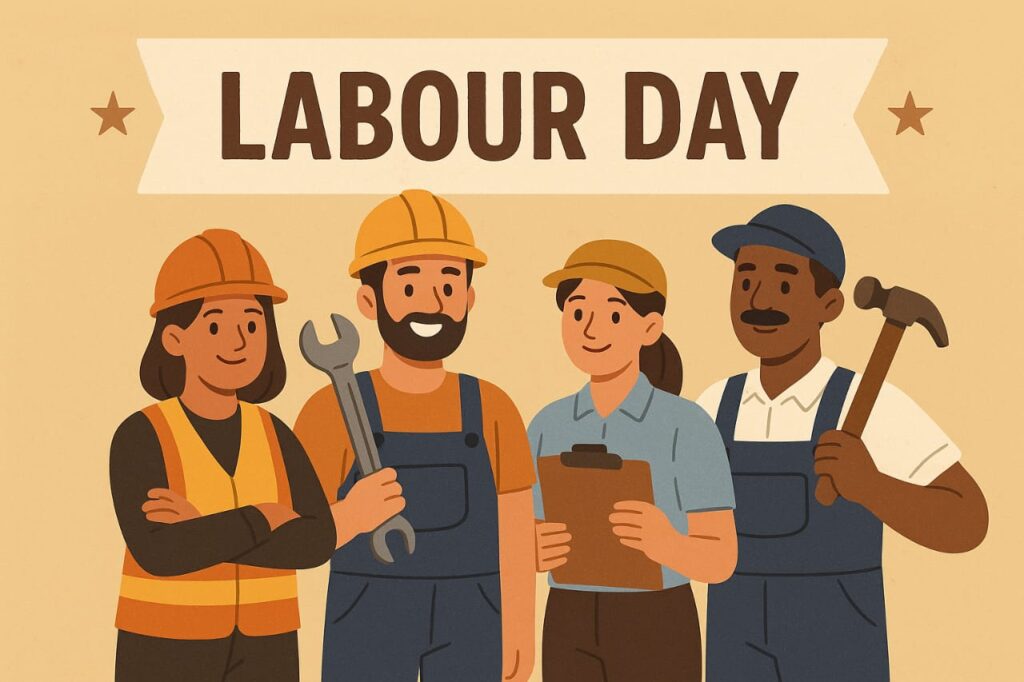
Discover the history, significance, and global impact of Majdoor Diwas (Labour Day). Learn why it is celebrated on May 1, how it began, and its importance for workers in India and worldwide.
Holidays Aren’t Just for Rest, They Have a History
“When we were in school, all we cared about was the holiday. More over, when we’re in a job, it’s still just about the holiday.
We never thought to learn what Labour Day really means, or why we get a holiday on this day.
We used to jokingly celebrate a friend’s birthday, wishing them ‘Happy Birthday.’ When they’d say ‘It’s not my birthday today,’ we’d respond — ‘It’s Labour Day today!‘… and we’d all laugh.”
But have you ever wondered what exactly Labour Day is? Why is it celebrated? And why is this day so important?
Let’s find out — the true history of Labour Day, its significance, and how relevant it is in today’s world..
1. What is Majdoor Diwas?
Majdoor Diwas is a day dedicated to the working class — the backbone of any nation’s economy.
It serves as a reminder of the struggles faced by laborers, their achievements in gaining rights, and the importance of fair treatment in the workplace.
On this day, various labor unions, political parties, and social organizations organize marches, speeches, and campaigns to promote worker rights and raise awareness about issues affecting them.
2. When is Majdoor Diwas Celebrated?
Majdoor Diwas is observed on 1st May each year. It is celebrated as a public holiday in many countries including India, where different states officially recognize it as Labour Day.
Globally, different names of this day:
International Workers’ Day (Global)
Labour Day (India, Canada, etc.)
May Day (Europe and parts of the world)
3. Origin of Majdoor Diwas: How Did It Start?
a. The Roots in the United States
The history of Majdoor Diwas dates back to the late 19th century in the United States, where industrialization had led to long and exhausting working hours — sometimes up to 16 hours a day — under extremely poor conditions.
On May 1, 1886, workers in Chicago organized a mass strike demanding an 8-hour workday.
The protest lasted several days and culminated in the Haymarket Affair on May 4, 1886. During a peaceful labor rally at Chicago’s Haymarket Square, an unknown person threw a bomb at the police. The chaos led to several deaths and injuries on both sides.
Despite the tragedy, the movement had a lasting impact. The demand for an 8-hour workday eventually gained global support, and the date May 1st became symbolic of workers’ rights.
b. Official Declaration by the Second International
In 1889, the Second International, an organization of socialist and labor parties, officially declared that May 1st would be observed as International Workers’ Day to honor the victims of the Haymarket Affair and to continue the struggle for labor reforms. Since then, May Day has become a global symbol of worker unity and resistance against exploitation.
4. Majdoor Diwas in India

a. First Labour Day Celebration in India
India observed its first Labour Day on May 1, 1923, in Madras (now Chennai). The celebration was organized by the Labour Kisan Party of Hindustan under the leadership of Comrade Singaravelu Chettiar, a prominent freedom fighter and labor activist.
He also made history by raising the red flag for the first time in India, which later became a powerful symbol of the working class and labor movements in the country.
b. Significance in Modern India
Today, celebrated this day across India with:
Rallies and processions by trade unions
Cultural programs in factories and offices
Discussions and debates on labor laws, rights, and welfare
Several states like Maharashtra, Tamil Nadu, West Bengal, Punjab and Andhra Pradesh observe it as a public holiday.
5. Why is Majdoor Diwas Important?
Majdoor Diwas is more than just a symbolic holiday; it carries deep meaning and relevance even today. Here’s why it matters:
a. Recognition of Workers’ Contributions
From construction workers and factory laborers to delivery personnel and sanitation workers — the celebration honors the invisible hands that power industries, cities, and nations.
b. Awareness of Workers’ Rights
The day reminds people about the legal rights of workers, such as:
Minimum wages
Safe working conditions
Regular working hours
Social security benefits
c. Voice Against Exploitation

Even in the 21st century, many workers face low pay, unsafe environments, and lack of job security. Majdoor Diwas is a platform to demand justice, reforms, and dignity in labor.
d. Uniting the Working Class
Majdoor Diwas brings together workers, unions, and social organizations under a common cause — the betterment of laborers. It fosters solidarity, empowerment, and collective bargaining.
6. Global Perspective: How Other Countries Celebrate
a. Russia and Eastern Europe
In former Soviet countries, May Day was a major political celebration with parades showcasing worker solidarity. It still holds importance in many of these nations.
b. European Nations
In Germany, France, Spain, and Italy, labor unions organize marches and demonstrations on May 1st to voice concerns over modern labor issues like automation, layoffs, and migrant rights.
c. United States and Canada
Interestingly, while the origin of Labour Day is rooted in the US, it is officially celebrated on the first Monday of September rather than May 1st due to political and historical reasons.
7. Challenges Faced by Workers Today
Despite decades of labor reforms, many workers still face challenges such as:
Job insecurity in the gig economy
Wage theft and delayed payments
Unsafe working environments
Gender-based wage gaps
Lack of social security for informal workers
The rise of AI and automation has also triggered fears about future employment in labor-intensive sectors.
8. Role of Government and Unions
To ensure justice for workers, it is essential that:
Governments strengthen labor laws
Enforcement agencies act against violations
Trade unions continue to protect workers’ rights
Employers adopt ethical labor practices
Majdoor Diwas serves as a call-to-action for all stakeholders to build a fair, inclusive, and humane work culture.
9. Inspirational Quote for Majdoor Diwas

“All labor that uplifts humanity has dignity and importance and should be undertaken with painstaking excellence.”
— Martin Luther King Jr.
Conclusion: Celebrating the Power of the Worker
Majdoor Diwas is not just a date on the calendar. It is a tribute to the spirit, sacrifice, and strength of millions of workers who silently build our world. Their sweat powers our homes, industries, and economies.
As we celebrate Labour Day, let us also pledge to create a future where every worker is respected, rewarded, and recognized — not just on May 1st, but every single day.
